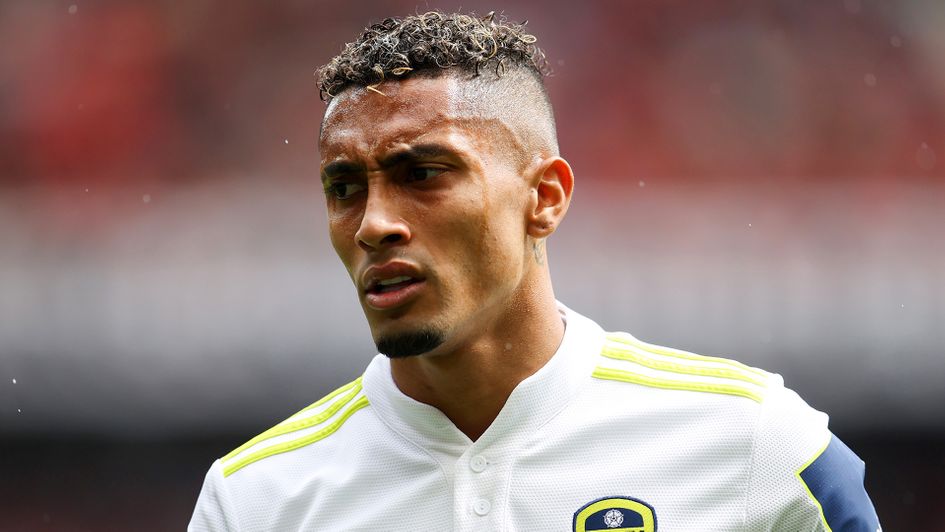Alex Keble shines his tactical spotlight on Liverpool v Chelsea, highlighting the similarities, and fundamental differences, between Thomas Tuchel and Jurgen Klopp.
It took a long time for Thomas Tuchel to come out of Jurgen Klopp’s shadow, and their unusually mirrored careers – Tuchel began at Mainz 05 before moving to Borussia Dortmund – is made all the more peculiar by the fact Tuchel is not a disciple of Klopp.
They share broadly similar tactical ideas but there are important differences, and so it was particularly unfair that Tuchel, failing to overachieve to quite the same degree as Klopp at either club, was for a long time seen as a mini-Klopp; a younger version - and smaller in stature, too.
That is no longer the case, not after Tuchel’s Champions League triumph and not after he so quickly turned Chelsea into a ruthlessly organised and razor-sharp team ready to challenge for the Premier League title.
Never before have Tuchel and Klopp been genuine rivals, but now – having between them occupied one of the dugouts at each of the last four Champions League finals – there can be no doubting Tuchel and Klopp are battling it out at the top of the game.
The German tactical evolution
We are in the age of the German manager, of piercing verticality through the lines and explosive high pressing, and yet despite the prevalence of these ideas at the top of the English game there is a parallel tactical trope developing that appears to be working in opposition to this idea.
Unlike the early days of Klopp versus Pep Guardiola in the Premier League, when hard pressing and all-action attacking football produced furiously chaotic end-to-end matches, the predominance of the German ideology has – counter-intuitively – produced its opposite in elite clashes.
Last season’s game between Chelsea and Liverpool, a 1-0 win for Tuchel’s men back in March when Klopp was forced to play Fabinho and Ozan Kabak at the back, is a case in point.

The game was infuriatingly cagey. Each manager was too wary of the other’s desire to play quickly through the lines and their ability to evade the press, which meant two relatively conservative midblocks sitting carefully behind the ball.
The pitch was compressed dramatically in central midfield – a sign of elite coaching – and yet neither team could break through the congestion to elongate the pitch, because neither pressed hard nor held a high defensive line.
The reasons for this development are two-fold.
First, Tuchel and Klopp are rightly spooked by high-scoring games that resulted from one elite club sitting deeper, waiting to counter behind the more attacking team. That has led to quiet stalemates as both teams sit off.
Second, a movement towards patient counter-attacking football in the latter stages of the Champions League has seen Tuchel adopt more reserved tactical methods in recent years. Having to balance the attacking riches of his Paris Saint-Germain team with their inexperience playing stronger opponents, Tuchel devised a reactive strategy during PSG’s run to the final in 2020. Subtly, this has affected his overall approach to the game.
All of which is to say that unfortunately this probably won’t be the manic game neutrals are hoping for.
Two positively charge ions
Klopp and Tuchel know each other too well and, having witnessed a return to high-energy football with fans back at stadiums, both will be extra cautious about pushing too hard for the win.
However, there are major differences between how the two managers tend to break – and that ought to produce a fascinating, if low scoring, tactical battle.
For Liverpool, emphasis is on directness. Ordinarily Klopp’s narrow 4-3-3 aims to draw the pitch inwards, in turn creating space for the full-backs to work their magic, but on this occasion Trent Alexander-Arnold and Andrew Robertson will surely be stopped by the Chelsea wing-backs; Tuchel’s 3-4-3 provides excellent defensive cover, leaving them five on five with the Liverpool attackers.
Instead, in this fricative and tightly-compacted game, look out for long passes over the top of the Chelsea defence – a tactic that proved fruitful in that 1-0 defeat back in March.
The centre-backs constantly looked for longer balls for Mohamed Salah and Sadio Mane to chase, playing the ball vertically through the pitch - but bypassing that highly-effective square-shaped Chelsea midfield with high, long passes forward.
By contrast Chelsea will hope to outnumber Liverpool four on three in the central column of the pitch, playing neat ground passes in sharp triangular formation to weave through. Mason Mount and Kai Havertz, pulling wider to evade the narrowness of Liverpool’s midfield three, will be targeted by N’Golo Kante and Jorginho as both players attempt to wriggle through the lines.
That dichotomy – direct hurls forward versus quick interchanges through the congestion zone – ought to define the pattern of a tense game that’s as likely to end 0-0 as in a victory for either side. But away from the main thrust of the narrative there are some fascinating individual battles to keep an eye on.
Romelu Lukaku versus Virgil van Dijk stands out
Liverpool were undone by through-balls for Timo Werner when the sides last met but Klopp’s side are back to their best now, and should the Dutchman keep Lukaku quiet then Chelsea could struggle without a fulcrum for Mount and Havertz to use.
Alternatively, Lukaku dropping deep to exchange passes with the inside forwards could leave Liverpool further outnumbered in midfield.
At the other end, Harvey Elliott may be the difference maker. He was impressive as the linking playmaker in a 2-0 win over Burnley, playing with the flair and dexterity we saw when Philippe Coutinho was briefly converted into a number eight by Klopp.
Intriguingly, Curtis Jones was Liverpool’s most important player in the 1-0 defeat to Chelsea in March; he made clever runs in the left half-space, linking with Robertson and Mane to cause mild panic around Reece James as Hakim Ziyech – the right inside forward – failed to get back and help. Perhaps Elliot can do something similar on Saturday.
Certainly it is a game likely to be decided by the finest of margins, by a minuscule pocket of space left open, or exploited, for a fraction of a second. After all, these are two teams with formations that clash awkwardly, leaving both sets of forwards blocked by equal numbers of defenders.
More importantly, these are two managers happy to keep things tight; to play it safe and reaffirm that tactical chess matches are back in vogue at the top end of the Premier League.












